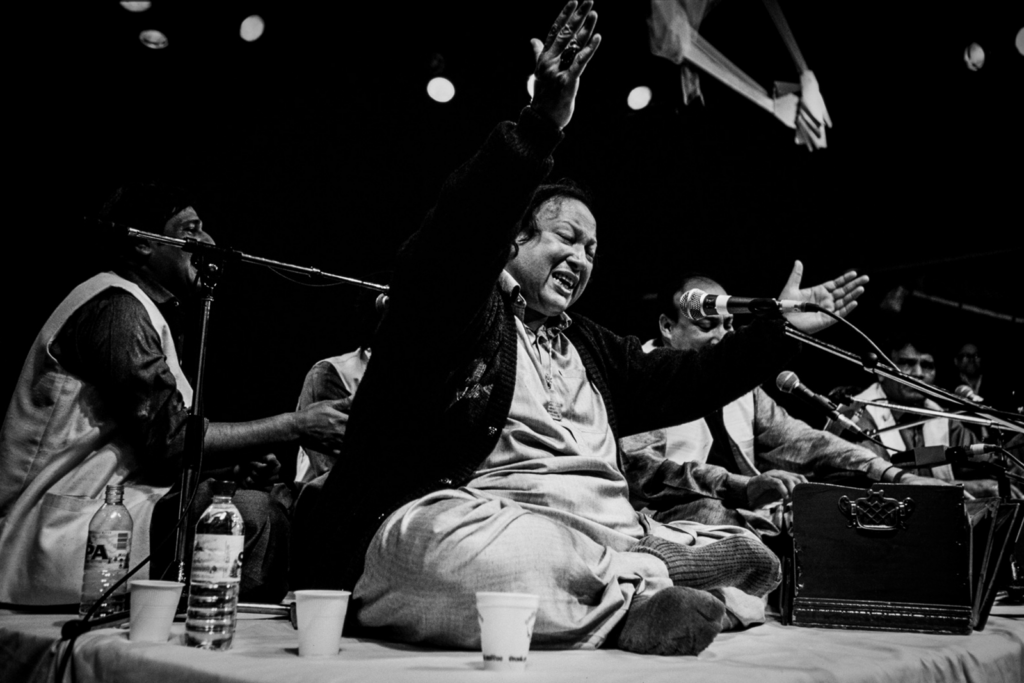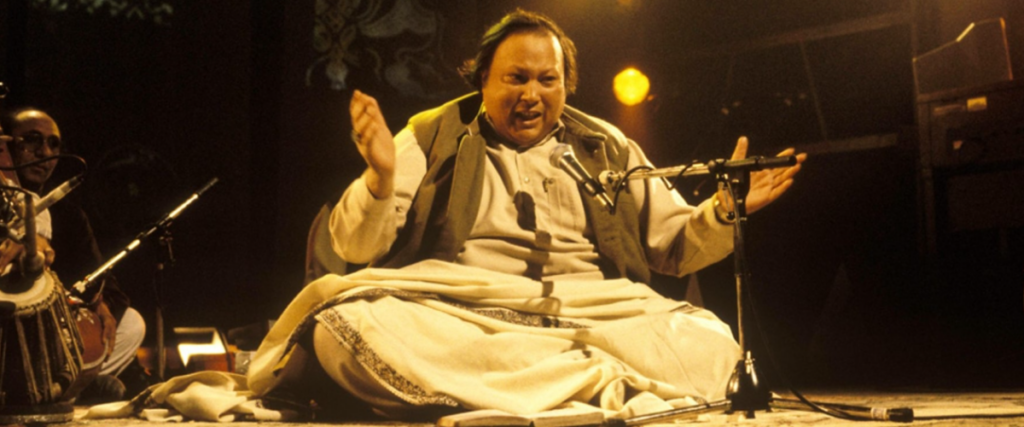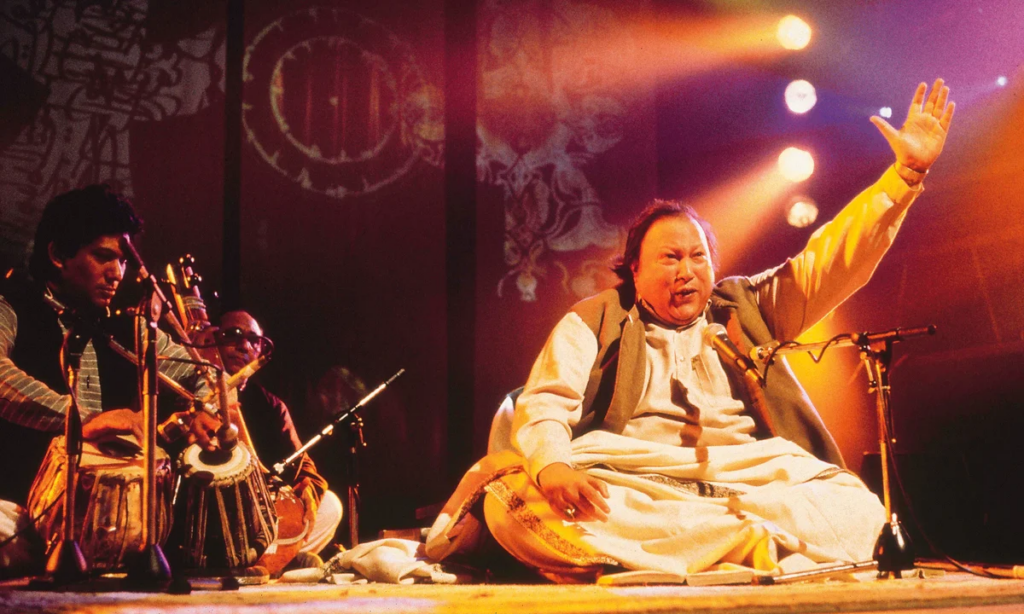When Javed Akhtar Sahab wrote the lyrics of panchhi nadiya pawan ke jhonke, he accurately depicted how some creations in the world are beyond the barriers of boundaries, languages, cultures, and even context. One such thing is music, the universal nature of which transcends every hurdle that man has ever made. Today, we are talking about the music of a special person, who India loves as its own because his creations make us feel closer, to ourselves and to divinity. From the vinyl records of generations gone by to this age of Instagram reels, one thing has remained constant on the cover, Nusrat Fateh Ali Khan.

I was brought up in a predominantly Muslim area of Odisha, where I had the good fortune of spending my evenings listening to the nearby Qawwalis and Mushairas. Thus, early in my life, I was introduced to the works of Nusrat Sahab. However, it was only during the telecasts of Sa Re Ga Ma Pa and Indian Idol that I learned the name of the maestro. I mean, every time someone sang piya re piya re, it used to be a special moment on the show and jury members couldn’t help but praise Nusrat Sahab’s genius in making this song.

Of course, owing to the brilliance and popularity of his songs, there have been countless remakes and renditions of almost all of his masterpieces, like Afreen Afreen, Sochta Hoon Ke Woh Kitne Masoom The, Ye Jo Halka Halka Suroor Hai, Aankh Uthi Mohabbat Ne Angrai Li – we got to know about these from either Coke Studio renditions or their remakes from Bollywood movies or albums. When done with love, that is not a bad thing either. The two versions of Akhiyan Udeek Diyan– one by Master Saleem and the other by artists Sohail Salamat and Jinx– are diametrically opposite in their approach and my absolute favourites.

However, you know it’s a Nusrat song when you hear it. What makes every song of him so uniquely and evidently Nusrat? It has to be the soul, the sheer charm, and the mystical essence he brings to his song in every lyric, tune, and rhythm. Way before people shared their Spotify screenshots on their Instagram stories, the Junaid Asghar version of Mere Rashke Qamar made its trip through Whatsapp forwards and took the song to such a pinnacle that it led to the Rahat Fateh Ali Khan rendition. Even when you knew nothing about this song from your Whatsapp, it somehow felt like a Nusrat Sahab song – which is the case with many of such remakes. Even if you hadn’t heard the originals before, it felt like a Nusrat song; and chances are you are one Google search away from finding out that your assumption is, in fact, correct. No matter the number of changes, you can always feel the magic.

What makes Nusrat Sahab’s music so universal in nature? You see older clips of the most prominent and affluent people vibing to his music in his concerts and you see today that his music is the background of Instagram stories and has become synonyms to ‘aesthetic’. Dil Ka Sauda Hua Chandni Raat Mein and Mere Rashke Qamar still make up for the language of the selenophiles on the internet. Almost everything from that time period has become archaic for this generation but Nursat’s music still is ‘cool’. How so? I feel apart from the musical brilliance, it’s the ubiquitous nature of heartbreak and yearning that makes it instantly relatable. The tone is never pessimistic despite the feeling of utter dedication towards lost love.

There’s a certain sense of power in losing everything. That’s what makes Nusrat Fateh Ali Khan’s songs the ones for every mood and every generation.

















